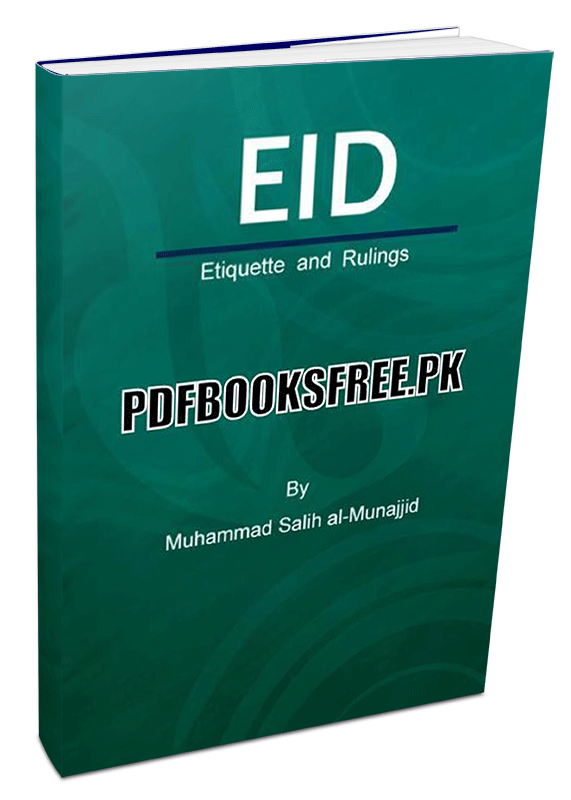
Eid Etiquette and Rulings by Muhammad Salih Al-Munajjid PDF Free Download
Eid Etiquette and Rulings Written by Muhammad Salih Al-Munajjid. “Eid” is an Arabic word referring to something habitual that returns and is repeated. Eids or festivals are symbols to be found in every nation, including those that are based on revealed scriptures and those that are idolatrous, as well as others, because celebrating festivals is something that is an instinctive part of human nature. All people like to have special occasions to celebrate, where they can come together and express their joy and happiness.
The festivals of the non-Muslims may be connected to worldly matters, such as the beginning of the year, the start of an agricultural season, the changing of the weather, the establishment of a state, the accession of a ruler, and so on. They may also be connected to religious occasions, like many of the festivals belonging exclusively to the Jews and Christians, such as the Thursday on which they claim the table was sent down to Jesus, Christmas, New Year’s, Thanksgiving, and holidays on which gifts are exchanged.
These ar celebrated in all European and North American countries nowadays, and in other countries where Christian influence is prevalent, even if the country is not originally Christian. Some so-called Muslims may also join in these holidays out of ignorance or hypocrisy. The Magians (Zoroastrians) also have their own festivals, such as Mahrajaan, Nowruz and so on.
The Baatinis have their own festivals too, such as “Eid al-Ghadeer”, when they claim that the Prophet (SAW) gave the Khilafah to ‘Ali r.a and to the twelve imams after him.
The Muslims are distinguished by their festivals. The Prophet’s words, “ Every nation has its festival, and this is your festival.” Indicate that these two Eids are exclusively for the Muslims and that it is not permissible for Muslims to imitate the Kuffaar and Mushrikeen in anything that is a distinctive part of their celebrations, whether it be food, dress, bonfires or acts of worship.
Muslim children should not be allowed to play on those Non-Muslim festivals, or to put up decorations, or to join in with the Non-Muslims on those occasions. All Non-Muslims or innovative festivals are forbidden (Haram), such as Independence Day celebrations, anniversaries of revolutions, holidays celebrating trees or accessions to the throne, birthdays, Labour Days, the Nile Festival, Shimm Al-Naseem (Egyptian spring holiday), Teachers Day and al-Mawlood al-Nabawi (Prophet’s Birthday).
The Muslims have no festivals apart from Eid Al-Fitr and Eid Al-Adha because of the Hadith narrated from Anas r.a who said:
“ The Messenger of Allah (BPUH) came to Madina, and the People had two days when they would play and have fun. He said, ‘What are these two days?’ They said, ‘We used to play and have fun on these days during the Jaahiliyyah. The Messenger of Allah (PBUH) said, ‘Allah has given you something better than them, the days of Fitr and the day of Adha.”(Sunan Abi Dawood, 1134)
These two Eids are among the signs or symbols of Allah which we must celebrate and understand the aims and meanings behind them. This book contains some of the rulings and manners of Eids according to Islamic Shariah Law in English language.
The book is now available on the Pakistan virtual library in high-quality PDF documents for the study of our visitors. Check out the following links to read online or download the complete book in PDF format and enjoy offline reading on your computer and smartphone.
